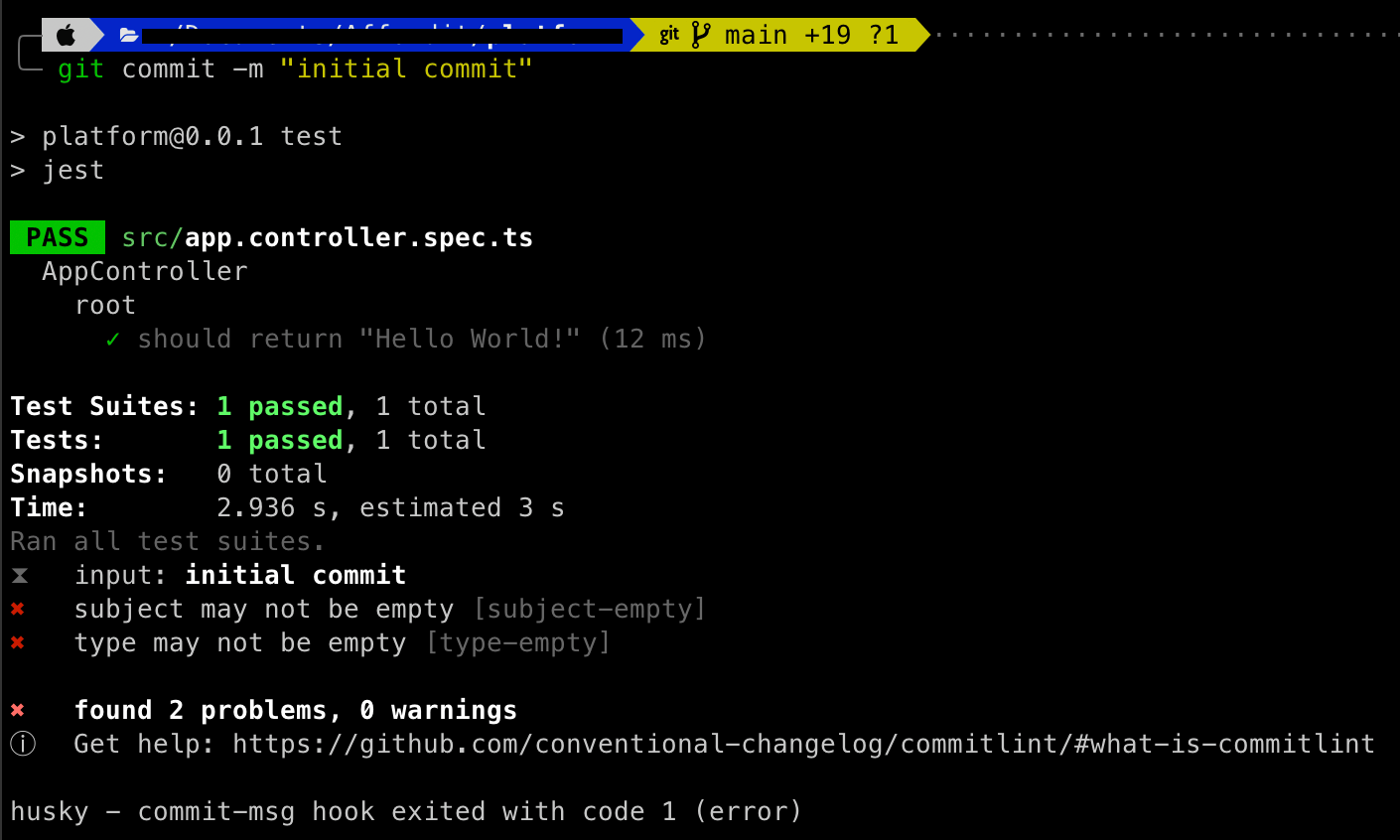- Published on
Building an API with NestJS #2: Setup Husky and CommitLint
- Authors

- Name
- Veri Ferdiansyah
- @vferdiansyah
Introduction
Git messages are one of the things that we software engineers love to hate. Do it right and you will have a clean git log which everyone in your team will appreciate and love. Do it wrong and good luck finding out which commit that needs to be reverted because of production issues.
If git messages are important, how can we maintain a clean git log then? This is the question that will be answered by this blog post.
Setting up CommitLint
CommitLint is a linting tool to lint commits. Just like ESLint, CommitLint has it's own set of rules that our commits need to follow. In this tutorial, we're going to use conventional commits specification.
To install CommitLint and config-conventional, you need to run this command:
npm i --save-dev @commitlint/{cli,config-conventional}
To use it, we need to create a file called .commitlintrc on our project root and extend config-conventional rules.
{
"extends": ["@commitlint/config-conventional"]
}
Now, we need to setup husky so that it will lint our commit message using git hooks.
Setting up Husky
Husky is, to put it simply, a helper to run Git hooks. You can use it to lint commit messages with the help of commitlint, run tests, lint code, etc. To install husky on your project, run the following command:
npx husky-init && npm install
It will:
- Add
preparescript to yourpackage.json - Create a sample
pre-commithook - Configure Git hooks path
You need to add another hook called commit-msg using husky add so that husky will lint your commit message.
npx husky add .husky/commit-msg 'npx --no -- commitlint --edit "$1"'
Now you can try to commit your changes. If your commit message doesn't follow config-conventional rules, you will see something like this:

That's because we don't follow <type>[optional scope]: <description> structure. Try changing your commit message to be feat: initial commit and see your changes being committed.
That's it for now. Stay tuned for my next post!